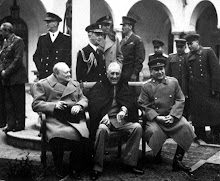What is happening now in Egypt reminds me in an eerie way of the Romanian revolution in 1989. The internet is already abuzz with speculation that Egyptian president Hosni Mubarak might end up like his late friend, former communist dictator Nicolae Ceausescu, who was executed after a very short trial. It’s all down to what the army will do – will it side with the people or continue to protect an increasingly alienated dictator?
I really hope, for the Egyptians’ sake, that the similarity stops here. What happened in Romania after the revolution and the execution of the Ceausescus is a sad reminder that good times do not necessarily begin once the revolution is won, protesters are back from the streets and the dead are buried. Blaming only one person for the evil that has penetrated a country is an easy, but dangerous path to take.
In 1990, after the Ceausescus were gone and the Communist Party supposedly outlawed, the second ranks of his loathed secret police – the Securitate - quickly became the new ruling elite. Without a law preventing them from taking public office, former Securitate agents, informers and collaborators became politicians and created a powerful network of corruption and influence peddling that has engulfed the country ever since.
There have been various attempts to save the Romanian revolution and return its results to the original intended purpose – an end to the corruption that the communist system had encouraged – but they were all stifled by force, the most famous being the two-month long protest in Bucharest and the subsequent bloodshed caused by the miners’ descent on the capital.
21 years after Romania’s revolution, corruption is omnipresent in the country, to such an extent that more than 10 percent of the population has emigrated in search of opportunities that are denied to them in their home country.
Social and economic inequality has deepened, the health system is full of doctors that are so callous they would let patients die unless they receive substantial bribes and many teachers in state schools give grades to young pupils based on the “presents” they receive from pupils’ parents rather than on the pupils’ own knowledge.
On many occasions, employment is subject to bribe giving or “knowing” somebody in the right place, rather than depending on the candidate’s real abilities. The media is made up almost exclusively of local moguls who use the TV channels, newspapers and news agencies they own to blackmail, influence and pressure politicians or companies to do various things that benefit a small and corrupt elite.
Ironically, Romanians are nearly back where they started: 21 years after their own revolution, they don’t have a free media, corruption is as rampant (if not even more) as it was under the communists and the rift between the privileged, ruling elite and its cronies and the anonymous masses who barely make ends meet is deepening.
Sure, they have freedom of speech and freedom of travel, and they take advantage of both. But I doubt that the more than 1,000 people who died in December 1989 sacrificed their lives so that the survivors can emigrate more easily.
That’s one lesson Egyptians could learn from the Romanians’ experience: once the Cairo revolution is over and Mubarak is out, don’t rely on the new people who come in to reform the system all by themselves. You must always be on guard and ready to defend democracy and the rule of law.
